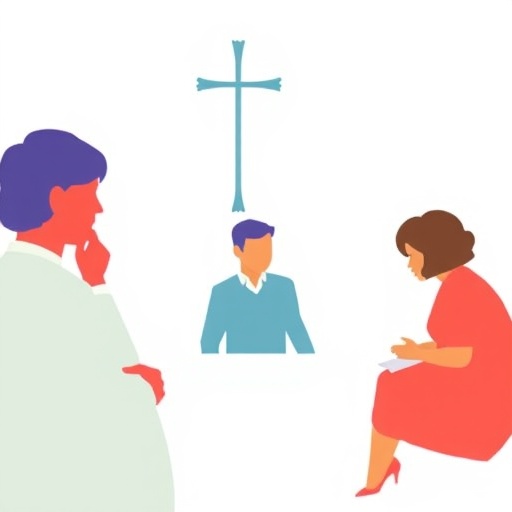In the realm of primary religious education, a new discourse is emerging, driven by a critical reevaluation of the traditional construct of the ‘expert teacher.’ This discourse is chiefly articulated in a forthcoming article by educator E. Yeomans, who posits that by embracing processes of subjectification within Initial Teacher Education (ITE), we can effectively challenge and redefine what it means to be an expert in the field. As educational paradigms continue to evolve, such insights become essential for nurturing the next generation of teachers who are prepared to engage with the complexities of religious education in a contemporary context.
The notion of subjectification involves shifting from a rigid definition of expertise to a more nuanced understanding of how teachers can grow and develop through personal and professional experiences. Yeomans argues that expertise should not be viewed solely through the lens of accumulated knowledge or formal credentials, but rather as a dynamic interplay of individual identity, social context, and transformative learning experiences. This perspective is particularly salient in religious education, where the diversity of beliefs and practices requires a flexible and open-minded approach from educators.
In her analysis, Yeomans draws from a variety of theoretical frameworks, including post-structuralism and critical pedagogy, to explore how teachers can undergo processes of subjectification. These frameworks underline the importance of reflecting on one’s positionality in the classroom and the implications this has on teaching methods and student engagement. By fostering an environment where teachers are encouraged to reflect on their identities and experiences, they can more effectively navigate the challenges of delivering religious education in culturally diverse settings.
Moreover, the article emphasizes the power dynamics that exist within educational contexts. Yeomans highlights how traditional views of the expert teacher often perpetuate a hierarchy that can stifle creativity and limit the potential for collaborative learning. In contrast, her proposed model of subjectification advocates for a more democratized approach to knowledge dissemination in the classroom, where teachers and students engage in co-learning. This shift not only empowers educators but also enriches the educational experience for students, enabling them to explore religious and ethical questions in a supportive environment.
As global societies become increasingly interconnected, the significance of inclusive pedagogies in religious education cannot be overstated. Yeomans identifies the pressing need for teachers to be culturally competent and responsive to the myriad of belief systems that students bring to the classroom. By engaging with diverse perspectives, teachers can cultivate a classroom culture that values dialogue and respect, essential traits for fostering peace and understanding in an often polarized world.
The implications of Yeomans’ research extend beyond the confines of religious education; they resonate throughout the broader educational landscape. By applying principles of subjectification, teacher education programs can better prepare educators to confront contemporary challenges, such as addressing social justice issues and accommodating varied learning needs. This reframing of expertise aligns with global educational goals that prioritize equity and inclusivity as fundamental pillars of effective teaching practice.
In an era marked by rapid change and uncertainty, the importance of adaptive teaching methodologies becomes paramount. Yeomans advocates for ongoing professional development that encourages educators to remain reflective and resilient. Such a commitment to lifelong learning not only contributes to personal growth but also enhances the overall quality of education that students receive. As teachers refine their practice, they model the very processes of inquiry and reflection that they wish to instill in their students.
The article culminates in a call to action for educational policymakers and institutions to reconsider their definitions of expertise within the teaching profession. By recognizing the value of subjectification processes, decision-makers can create policies that support teacher development that is responsive to both societal changes and students’ needs. This alignment would ensure that future educators are equipped to foster critical thinking and ethical reasoning in their classrooms.
Yeomans’ work is a clarion call to transcend conventional paradigms of teaching and learning. It encourages a formative approach to teacher identity that is informed by lived experiences, ongoing collaboration, and the recognition of the rich tapestry of our world’s belief systems. As the field of primary religious education continues to develop, embracing such transformative frameworks will be essential for cultivating a generation of educators who are not only knowledgeable but also empathetic and socially aware.
The implications for teacher education programs are profound. Institutions are urged to incorporate methodologies that embrace subjectification, equipping future teachers with the tools to adapt and innovate. This will require a fundamental shift in how teacher training is structured, emphasizing flexible, responsive frameworks that encourage personal agency and critical engagement with diverse worldviews.
The challenges inherent in redefining expertise in education are significant, but they are not insurmountable. By fostering a culture of continuous reflection and open dialogue, educators can redefine their roles and responsibilities. By doing so, they will equip themselves not only to convey knowledge but also to inspire, engage, and empower their students in navigating the complexities of our multifaceted world.
As we look toward the future, the potential of subjectification as a catalyst for educational change remains vast. Yeomans’ insights provide a compelling framework for rethinking how we view teaching expertise in religious education, encouraging an holistic approach that recognizes educators as dynamic individuals capable of growth, adaptation, and profound impact. In this evolving educational landscape, the challenge lies in embracing these changes and nurturing a generation of teachers ready to inspire meaningful conversations about faith, morality, and human values in an increasingly diverse society.
Subject of Research: Subjectification in Initial Teacher Education and its impact on the paradigm of the expert teacher in primary religious education.
Article Title: How a process of subjectification in ITE can challenge the paradigm of the expert teacher in primary religious education.
Article References:
Yeomans, E. How a process of subjectification in ITE can challenge the paradigm of the expert teacher in primary religious education.
j. relig. educ. (2025). https://doi.org/10.1007/s40839-025-00278-z
Image Credits: AI Generated
DOI:
Keywords: Subjectification, expert teacher, primary religious education, teacher education, pedagogical paradigms.




